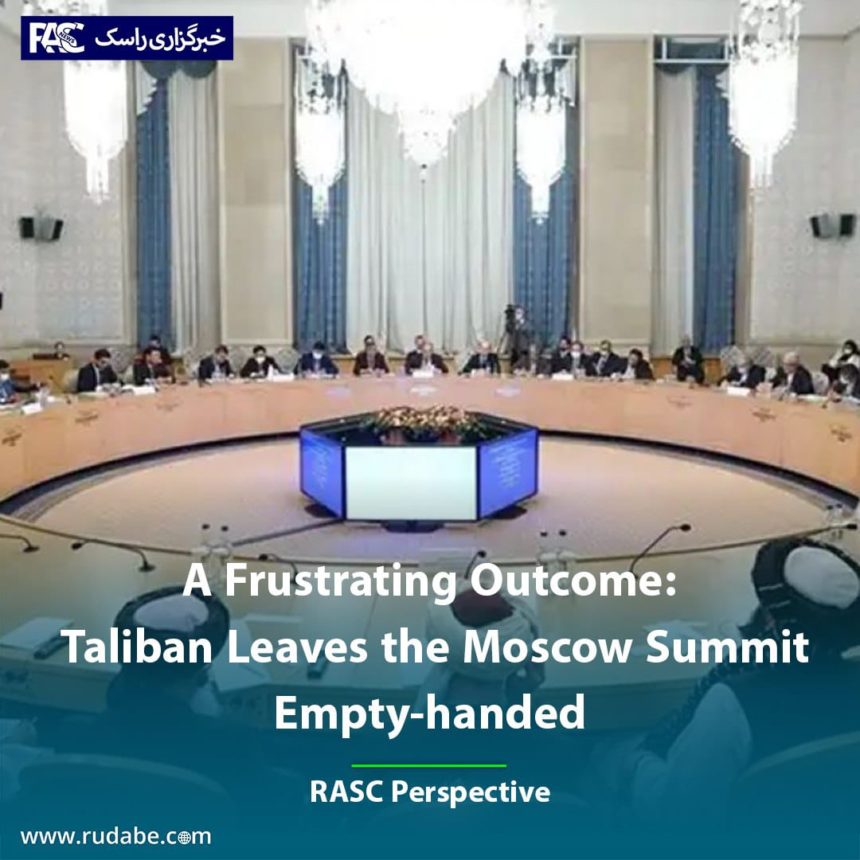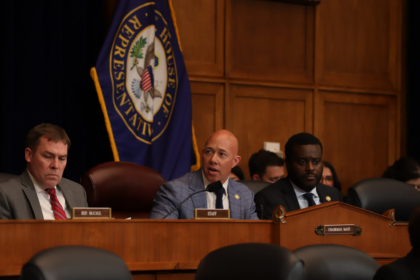RASC News Agency: The Taliban lack both internal and external legitimacy. They strive to conceal their illegitimacy through media propaganda. For them, an opportunity to be invited to a foreign session is of great media importance. They use the invitation for domestic propaganda to pretend that the world recognizes the Taliban’s importance. The anonymous Foreign Minister of the Taliban group participated in the Moscow Summit with the optimism that it would serve the Taliban’s propaganda and benefit. To portray their fake internal legitimacy, the Taliban had also included a Hazara and a Tajik. However, the summit did not have a positive outcome for the Taliban. Moscow used the summit to promote Russia’s position and to demonstrate that the Russian government is a decisive player in the region. Accordingly, NATO and the US were cautioned not to return to Afghanistan and the region.
In reality, the outcome of this summit is a political maneuver by Russia while it is at war with Ukraine and has become relatively isolated politically. Therefore, such summits can be relatively propagandistic for Russia’s political position. However, Moscow knows that the Taliban has connections with Europe and the US, so in a way, this summit was a message to the Taliban that Russia does not want them to rule Afghanistan in harmony with Europe and the US.
The Taliban’s expectation was that a statement in their favor would be issued at this summit. However, contrary to their hopes, and despite their display of fake legitimacy by bringing a Hazara and a Tajik, no statement in favor of the Taliban was issued, as the representative of Tajikistan at the summit opposed it. Furthermore, the fake legitimacy display by the Taliban was also futile, as the representative of Moscow and representatives of other countries emphasized that the Taliban has no internal legitimacy, and the Taliban’s external legitimacy is related to their internal legitimacy in Afghanistan.
In the absence of internal legitimacy in a country, one cannot speak of government and state in that country. Therefore, the emphasis of the members of the summit was on the formation of a comprehensive government in Afghanistan. The emphasis on the formation of a comprehensive government in Afghanistan implies that there is no government in Afghanistan. Hence, in this summit, the lack of internal and external legitimacy of the Taliban was highlighted, and the Taliban could not make any media or propaganda use of this summit and returned to Kabul empty-handed.
According to reports, the Taliban have put pressure on the Hazara and Tajik they had brought to the summit and said that they could not fulfill their duty in the summit and say that the Taliban have internal legitimacy in Afghanistan, and we are from non-Pashtun ethnic groups.
The opinion expressed by the representative in the company of Mutaqi at the summit was conveyed through his friends, who stated that he was under pressure from the Taliban. According to his friends, he is trying to escape and leave Afghanistan.
The fundamental and critical question in these circumstances is what political opponents and people’s resistance fronts can do? The immediate answer to this question that everyone gives is that these movements should “unite.” The reality is that political opponents and people’s resistance fronts must think about reaching a council and union so that they can take a united political and military stance from a single address, position, and viewpoint. Reaching a unified address and taking a united political and military stance gives importance to these movements and fronts globally and strengthens their position and stance in domestic relations as well.
Therefore, the result of this unity is that the discussion of recognizing the Taliban will no longer be raised at the global and regional levels, and the Taliban will completely lose their hope for internal and external legitimacy.
More importantly, in this case, countries of the world cannot hold meetings about Afghanistan without inviting political and military opponents of the Taliban and are obliged to invite representatives from opposing political and military movements in their meetings.
If political opponents and people’s resistance fronts can come closer together, the reality is that the Taliban group will face various problems, especially internal problems, and people’s resistance against this group will become nationwide in the country.
In the current circumstances, where the Taliban are striving for internal and external legitimacy, and their efforts for legitimacy have yielded no results, it is time for all political factions and people’s resistance fronts opposing the Taliban to think about their political unity. By achieving political unity, they can put an end to the Taliban’s begging and striving for internal and external legitimacy. If the Taliban group becomes completely hopeless for recognition, internal differences within the Taliban will increase, and intra-group warfare among the Taliban will occur.






